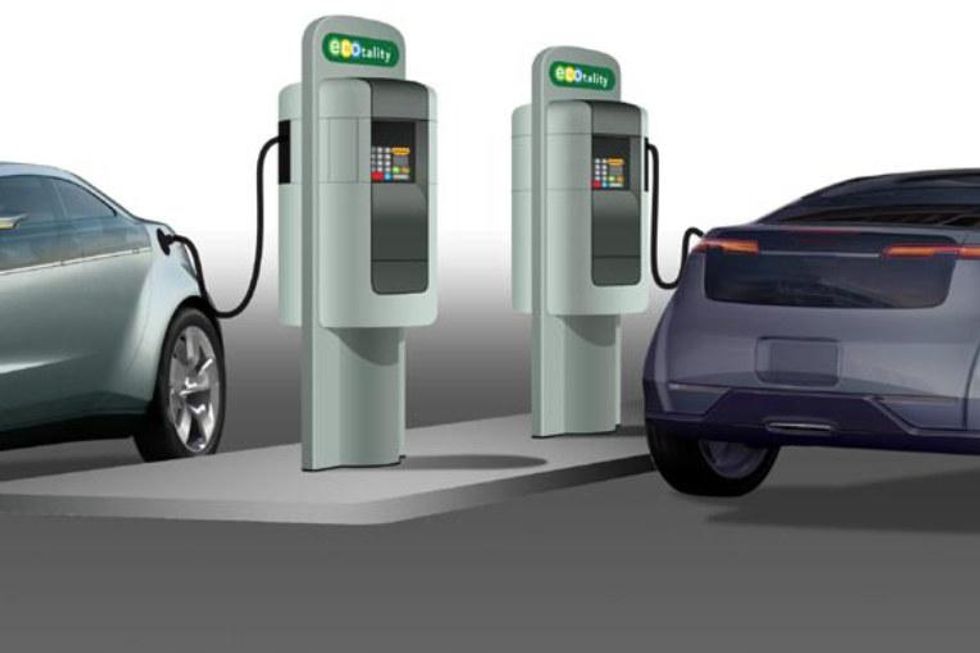.
An electric EV charger OEM makes use of communication networks to automatically incorporate two-way energy flow, allowing electric vehicle batteries to be used as a utility resource.
A charging station, also known as an EV charger or electric vehicle supply equipment (EVSE), is a device used to charge connector electric vehicles.
Cars in general produce a lot of carbon and exhaust emissions that are not only harmful to the environment but also make us vulnerable to greenhouse gases and pollution. In order to improve the air quality and reduce the number of health concerns caused by air pollution, eco-conscious consumers are switching to electric vehicles. The advent of electric vehicles is gradually improving the overall energy generation and usage.
The electric vehicle (EV) has an electric motor and does not require fuel. Thus, there is no question of fossil fuel exploration. Governments, as well as private organizations across the globe, are taking initiatives to promote adoption of electric vehicles. There has been a rapid surge in the sales of electric vehicles globally due to increasing awareness about benefits of using electric vehicles. These vehicles offer better energy efficiency, improve health and economic growth, require low maintenance, and are manufactured by many companies worldwide. The charging stations are usually deployed in buildings and public parking areas, shopping malls, or workplaces to supply electrical power for charging these plug-in electric vehicles. Some of these charging stations are equipped with advanced features such as smart metering, network connectivity, or cellular capability.
EV charge puts you ahead of the competition by increasing the performance of your product.
Charger availability
Given a 24/7 connection, advanced self-diagnostic systems and technical support, maximum availability of the recharging network is attained.
Energy efficiency
EV charge's energy control enables static and dynamic power management.
Variety of chargers
Thanks to the open OCPP protocols, EV charge supports a wide range of chargers from different manufacturers.
Ticketing and billing
EV charge is prepared to provide tickets or invoices to the users of the recharges and, thanks to the OCPI protocol, all kinds of accounting records for the operators of the charging points or service providers.
Without limits
EV charge allows you to manage multiple domains, users, groups, chargers, clients, drivers and vehicles.
White label
With EV charge you can manage your recharge networks with your own brand and on your own server.
Electric Vehicle Charging Infrastructure Sector OEM Contract Manufacturer
Besen-group Products, Inc. is a top EV charging station manufacturer and has the capability to add value to any OEM in the EV charging sector with decades of expertise in charging optimization and battery storage manufacturing and production. We are prepared to meet the challenges of a rapidly expanding worldwide EV fleet, producing state-of-the-art components that meet the growing demand faced by EV charging station OEM manufacturers for environmentally responsible transportation solutions.
Besen-group charging infrastructure production capabilities include Level 1 charging, Level 2 charging, Level 3 charging (DC fast charging or DCFC) and Level 4 charging stations with Open Charge Point Protocol (OCPP) that are UL 2202 and UL 2594 compliant, offering your OEM manufacturing company the flexibility to reach private, commercial and industrial EV charging markets with a range of depot charging station options. As a leader in value-added manufacturing, we offer safety compliance support beginning at the design phase.



 StableDiffusion
StableDiffusion StableDiffusion
StableDiffusion StableDiffusion
StableDiffusion Photo by
Photo by  Photo by
Photo by  Photo by
Photo by 
 Photo by
Photo by  Photo by
Photo by  Photo by
Photo by  Photo by
Photo by  Photo by
Photo by 








